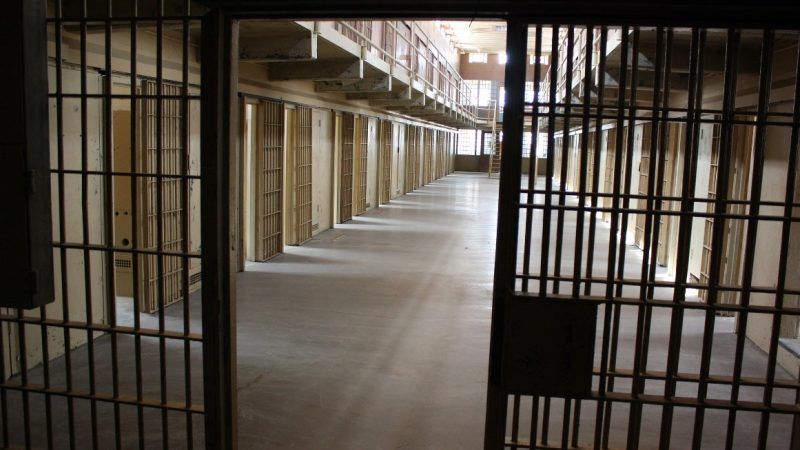'It's Not Easy Doing Time in Here': Michael Thompson Shouldn't Die in Jail for Pot Crimes
Michael Thompson is serving a 40- to 60-year sentence for a pot crime in a state where both recreational and medicinal marijuana are currently legal

Michael Thompson, 69, was awakened one night at 3 a.m. by his cellmate at the Muskegon Correctional Facility in Michigan. The prisoner was crouching on the ground, wielding a Pepsi bottle and asking Thompson, "Can you feed me?"
"I said, 'What? It's 3 a.m. Just go on and lay down, I'll get you in the morning,'" Thompson says. "You've got a lot of mentally challenged people. They put them in prison now."
A different cellmate woke him in the middle of another night. "He was buck naked, just looking at me, staring at me. This 350-pound guy is just standing there in the dark, naked, just looking at me.
"It's not easy doing time in here," Thompson says.
Thompson has spent more than a quarter of a century in prison. During that time, his mother, father, and only son all died. He attended his mother's funeral in chains. Her deathbed wish—communicated to his nephew, future Flint Mayor Sheldon Neeley—was that Thompson not die in prison.
Thompson is serving a 40- to 60-year sentence for a pot crime in a state where both recreational and medicinal marijuana are currently legal.
In 1993, Thompson sold three pounds of weed to an employee of a car muffler shop in Flint. His buyer turned out to be working as a police informant.
After he was arrested, police found guns on his property. Of the guns they found, one was an antique rifle. Another belonged to Thompson's then-wife. No guns were used during the pot sale. But Thompson had some nonviolent priors, so prosecutors were able to stack charges, resulting in his extreme sentence.
Thompson, who has severe diabetes, is at high risk for COVID-19. Prisons and jails have been epicenters of coronavirus outbreaks. Eight of the top 10 cluster sites are at correctional facilities, according to New York Times data.
In April, in a move that is virtually unprecedented, Genesee County, Michigan, prosecutor David Leyton called for Thompson's release. "40 years is a very harsh sentence," Leyton told Michigan Live. "In today's world, if you are convicted of second degree murder, you're not likely to get 40 years." Indeed, murderers and rapists regularly get less time than Thompson did.
"Why do they have a problem with a guy that sold three pounds of marijuana?" Thompson wonders. "Plus they legalized it!"
Thompson has been petitioning for his freedom for years, to no avail. He had high hopes when the progressive Gov. Gretchen Whitmer took office. But so far, Whitmer has not pardoned Thompson or offered him clemency, despite her enthusiastic support of the state's legal weed industry. Whitmer has sent a video greeting to the Hash Bash, an annual event focused on reforming marijuana laws, and she has said she wants to expunge the criminal records of people with marijuana convictions.
Last week, Whitmer—who is reportedly on the shortlist of potential picks to be Joe Biden's running mate—wrote a New York Times op-ed decrying the federal government for putting people at COVID-19 risk by instructing her office to re-open businesses. She wove her argument about the federal government's re-opening orders with their lack of concern for black lives.
Micheal Thompson is black. He also has a spotless disciplinary record and is suffering from ailments that put him at risk for COVID-19.
Sarah Gersten is executive director and general counsel for the Last Prisoner Project, a nonprofit that lobbies for the release of pot prisoners. She points out that the Michigan parole board has neglected Thompson's petition.
"Their response has been 'We're overwhelmed, a lot of folks are trying to get released,'' Gersten says.'
Gersten is perplexed by Gov. Whitmer's recalcitrance. "I'm baffled by her continuances of talking about racial justice. Her refusal to engage in this case is absurd."
"I'm praying," says Thompson.


Show Comments (16)